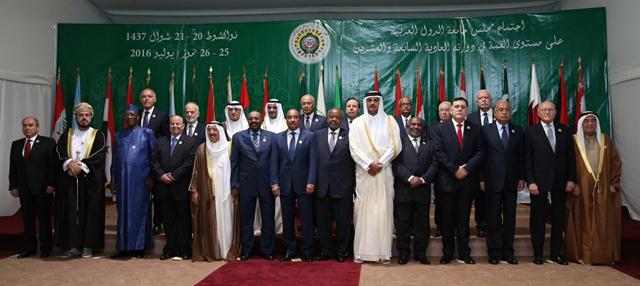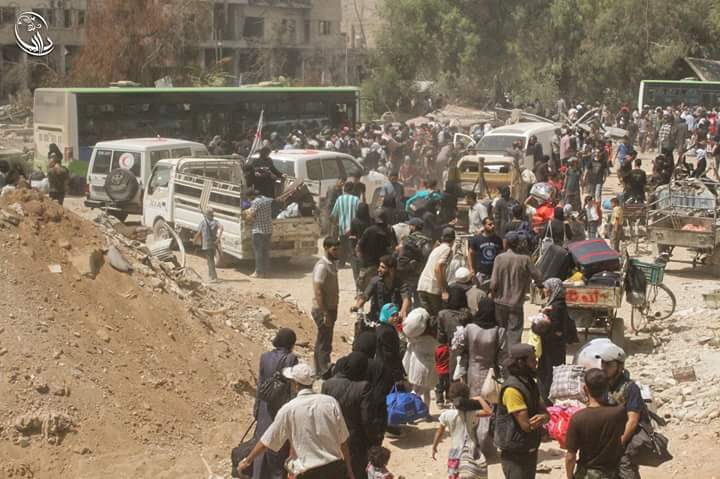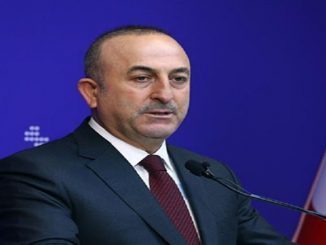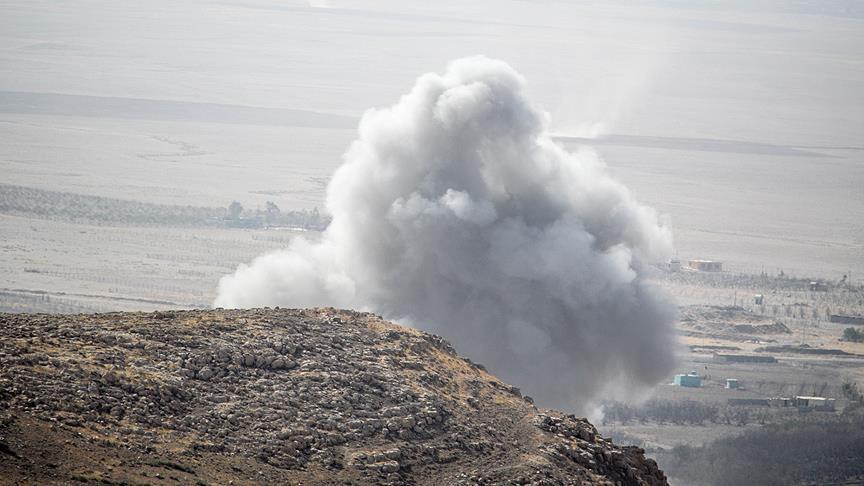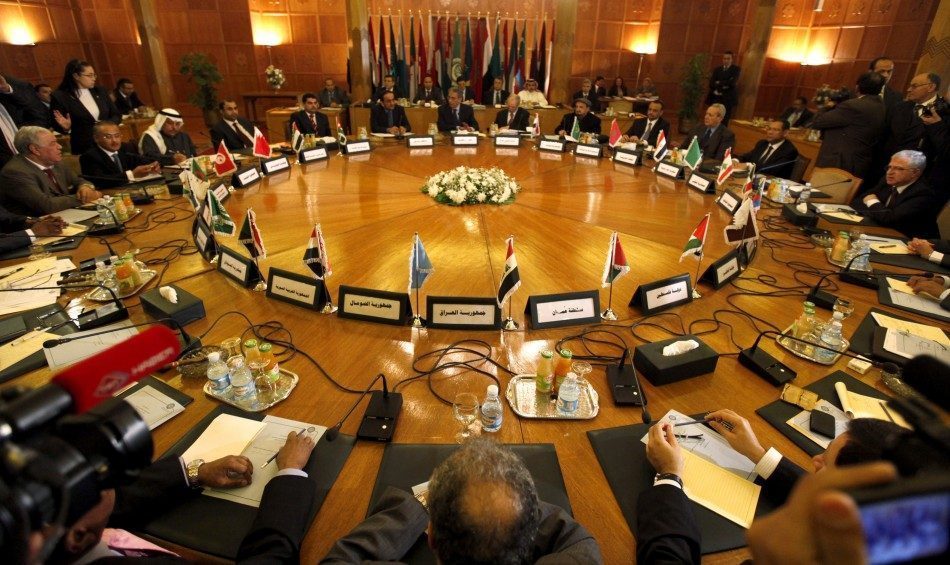
The works of the 27th normal session of the Arab League Summit was launched Monday morning in the Mauritanian capital, Nouakchott.
Chaired by Mauritanian President Mohamed Ould Abdel Aziz, the two-day conference opened on Monday inside a large tent in Nouakchott, with the crises in Syria, Iraq, Yemen and Libya the main focus of talks.
The countries participating in the Summit were Jordan, UAE, Qatar, Algeria, Tunisia, Yemen and fifteen other Arab countries, while the Syrian seat was suspended “because of the ongoing war in the country.”
Representative of the head of the African Union, the Secretary General of the Arab League, Ahmad Abu el-Gheit, the secretary general of the Organization of Islamic Cooperation, the secretary general of the Gulf Cooperation Council, the representative of the UN’s secretary general, in addition to a number of other representatives, were present at the Summit.
Arab leaders, speaking at the opening of the Arab League summit in the Mauritanian capital, have pledged to “defeat terrorism” , with the ongoing threat of violence in the region dominating the agenda
Mauritania is now presiding the 27th Arab League Summit following Egypt which presided the 26th version.
Egypt’s statement
Sherif Ismail, Egypt’s prime minister, was one of the first of the 21 leaders to speak and blamed foreign intervention in the region for the rise of groups such as the Islamic State of Iraq and the Levant (ISIL, also known as ISIS) and for the radicalisation of young people.
“Foreign intervention in Arab affairs is one of the major reasons for the current crisis, therefore we should work together to cement our domestic fronts in order to be able to stand up to these foreign interventions,” Ismail said.
Syrian Crisis
For his part, Adel al-Jubeir, the Saudi foreign minister, addressed the conflict in Syria, saying there could be no solution while President Bashar al-Assad was still in power.
“Thousands have been killed and millions displaced in addition to the destruction of the infrastructure of the country, as a result it is impossible for Bashar al-Assad to have any place in the future of Syria, especially since his hands are tainted with the blood of his own people,” he said.
More than 450.000 Syrians were killed during the past 5 years, and 12 millions were driven out of their homes. 7 million Syrians are now refugees around the globe.
Yemen Crisis
Yemen’s president called on his country’s Houthi fighters to surrender their weapons and withdraw from territories they control as Arab coalition air raids continue to strike the armed group’s positions.
Abd-Rabbu Mansour Hadi, who has fled the Arabian Peninsula country, called the continuation of air strikes “a spark of hope”.
“The only solution to the crisis is for the [Houthis] to abide by the recommendations of the Gulf Arab initiative and UN Security Council resolution 2216 which calls for them to withdraw from areas they seized and lay down the heavy arms they have,” Hadi said.
About 9,000 people have been killed in Yemen since the intervention began last March, the majority of them civilians, according to UN figures.
The fighting has also driven 2.8 million people from their homes.
Israeli-Palestinian talks
Arab leaders also voiced support for a new French initiative aimed at relaunching Israeli-Palestinian talks and holding an international conference for peace by year end.
“Putting an end to Israeli occupation and establishing an independent state of Palestine with east Jerusalem as its capital will always remain the prime focus and purpose of the Arab world,” Ahmed Aboul-Gheit, the secretary-general of the Arab League, said.
“The stand taken by Israel continuing its illegal settlements requires us to find new and creative proposals to … achieve peace. This requires us to take advantage of the recent momentum … about the implementation of a two state solution.”

